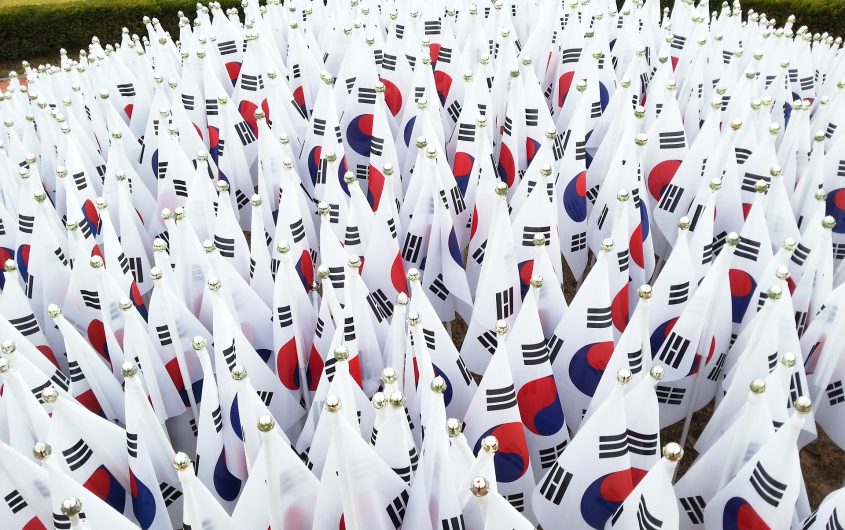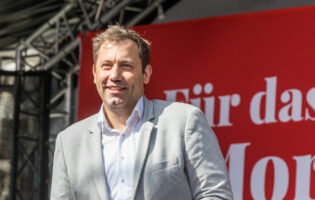
Arise and Shine! The Role of Korean Protestant Churches in a Time of Conflict

Yangmo Ku
Norwich University
Yangmo Ku is Assistant Professor of Political Science and Associate Director of the Peace and War Center at Norwich University. He received a BA in German Language and Literature from Sogang University in Seoul, and earned a MA in International Affairs and a PhD in Political Science from George Washington University. He previously taught in the School of International Service at American University. Dr. Ku’s research focuses on Korean politics, East Asian security, U.S. foreign policy, and the politics of memory and reconciliation in East Asia and Europe. His coauthored book, titled Politics in North and South Korea: Political Development, Economy, and Foreign Relations, will be published at Routledge in December 2017. His previous research has also appeared in numerous journals, including the Journal of East Asian Studies, Asian Perspective, Pacific Focus, Asian Journal of Peacebuilding, and the Yale Journal of International Affairs, as well as in two edited volumes on memory and reconciliation and North Korean nuclear issues.
He is a 2017-2018 participant in AICGS’ project “A German-American Dialogue of the Next Generation: Global Responsibility, Joint Engagement,” sponsored by the Transatlantik-Programm der Bundesrepublik Deutschland aus Mitteln des European Recovery Program (ERP) des Bundesministeriums für Wirtschaft und Energie (BMWi).
In world history, Christianity was sometimes a source of conflict as shown in the cases of the Crusades and the Thirty Years’ War. On the other hand, Christian churches also served as a catalyst for cultivating peace and reconciliation within countries like South Africa that suffered harsh racial discrimination. After the end of the notorious Apartheid policy in 1994, the churches in South Africa made great efforts to animate forgiveness, healing, and restoration rather than seeking revenge on past perpetrators.
Moreover, Christian churches took the initiative in the process of reconciliation between former adversary states, such as Germany and Poland. The exchange between lay church leaders in the two nations started in the 1950s and 1960s when their mutual antagonism was highly acute. In October 1965, the Evangelical Church of Germany issued a letter encouraging the West German government to formally relinquish its eastern territories and requesting Germans and Poles to initiate a process of healing through dialogue. Polish bishops replied to the letter using a considerably cordial and conciliatory tone, and this act further stimulated German bishops’ reconciliatory remarks. As a process of psychological relaxation, this church initiative helped smooth Germany’s political journey eastward.
Now it is high time for Korean Protestant Churches, which underwent an unprecedented growth over the last century, to awake out of sleep and make a contribution to peace and reconciliation on the Korean peninsula and other conflict-ridden regions.
Now it is high time for Korean Protestant Churches to awake out of sleep and make a contribution to peace and reconciliation on the Korean peninsula and other conflict-ridden regions.
Entering into the Korean peninsula in the late nineteenth century, Christianity dramatically grew in Korean society over the last 130 years. As a result of the Great Pyongyang Revival of 1907, Pyongyang was called “the Jerusalem of the East,” and the number of Korean churches increased significantly, reaching about 3,000 by the end of 1940s. During the first half of the twentieth century, Korean churches, supported by western missionaries, played a crucial role in promoting education, medical service, and modernization in Korean society. Moreover, many Christian leaders were key actors in achieving the liberation of Korea from Japanese colonial rule (1910-1945). Since the nation’s involuntary division in 1948, the communist North Korean regime has harshly persecuted Christians, but a number of underground churches have been still operating and yearning for the day of freedom. On the other hand, South Korean churches continued to grow during the postwar period. Thus, according to a 2015 government survey, Protestantism took 19.7 percent (9.67 million) of the Korean population, becoming the most popular religion in South Korea, where Buddhism and other indigenous religions are deeply rooted. Furthermore, about 27,200 missionaries, dispatched by Korean churches, are currently serving in 172 countries worldwide.
As South Korean society further progresses, however, the reputation of Korean churches, which contributed greatly to the nation’s modernization and democratization, has plummeted due primarily to the negative influence of materialism and secularism. For instance, many mega churches have been engrossed in constructing luxurious church buildings, as opposed to paying much attention to the poor and marginalized people in Korean society. Instead of serving as pioneers who establish a just society, many church leaders have shown a deplorable tendency to bequeath their pastoral position to their children. Moreover, numerous church leaders have been charged with sex, money, or power-related scandals. The current condition of Korean churches seems fitting well to a Biblical teaching, “You are the salt of the earth. But if the salt loses its saltiness, how can it be made salty again? It is no longer good for anything except to be thrown out and trampled underfoot.”
Given this circumstance, South Korean churches should get out of a dark tunnel and restore its mission as the salt and light of the world. While rectifying the wrong practices mentioned above, Korean churches and their leaders should strive to work as “peacemakers” in a time of conflict. As we have witnessed, the Korean peninsula and the East Asian region are presently at a critical juncture because of North Korea’s nuclear/missile standoff with the international community, particularly the United States. In late 2017, the nuclear crisis reached the peak as a consequence of North Korea’s relentless nuclear/missile tests and America’s rhetorically staunch military responses. Many experts were seriously concerned about the possible outbreak of a nuclear war on the Korean peninsula, which could bring about millions of human casualties and massive destruction of industrial facilities. But thankfully, rather than spinning out of control, the nuclear crisis appears to be under control due to diplomatic initiatives taken between the two Koreas and the U.S. over the last several months.
Nevertheless, the current situation is still unstable and could significantly change depending on how the summit between U.S. president Donald Trump and North Korean supreme leader Kim Jong-un proceeds. If the summit is not held as originally scheduled on June 12, 2018, or fails to produce a mutually acceptable agreement, the nuclear tension could skyrocket again, as the summit card, a final diplomatic instrument to resolve the North Korean issue peacefully, is used up and military options might be seriously considered. Even if the summit succeeds in reaching an agreement to denuclearize North Korea, there must be many challenges, including the scale and method of inspection on suspicious nuclear sites within North Korea, in implementing the agreement in the long run.
In this context, Korean churches need to serve as “peacemakers” by adopting subsequent measures, though being unable to directly intervene in governmental policies. First, it is necessary for the churches to launch consistent, large-scale prayer campaigns for the peaceful resolution of the North Korean nuclear/missile problem and the eventual inter-Korean reconciliation and reunification. These prayer campaigns themselves not only have spiritual power, but they also could work as a stimulus for spreading peace-loving hearts to as many Korean people as possible. Unfortunately, many conservatives in South Korean society are still prone to believe that military actions, such as U.S. preemptive strikes on North Korean nuclear facilities, are indispensable to the resolution of the nuclear issue. It is needless to say, however, that such military option could trigger an all-out nuclear war on the Korean peninsula, thus producing unimaginably disastrous outcomes.
Second, such prayer campaigns could also become a transnational movement that incorporates churches around the world, particularly in the U.S. and Europe where South Korean churches have long built close networks among various church denominations, such as Presbyterianism, Methodism, and Baptists. The formation of robust peace-loving public opinion in the international community could prevent the U.S. from adopting military actions in case the current diplomatic initiatives do not work effectively. Third, Korean churches should be willing to financially support North Koreans who suffer from malnutrition and lack of resources for economic development if the North Korean regime promises to dismantle its nuclear capabilities and opens its door to the outside.
The formation of robust peace-loving public opinion in the international community could prevent the U.S. from adopting military actions in case the current diplomatic initiatives do not work effectively.
Lastly, these campaigns should be linked to other religious groups, thereby triggering an ecumenical movement for peace and reconciliation within both Korean society and the international community. Besides the nuclear/missile crisis on the Korean peninsula, this world is fraught with numerous conflicts and tensions, including civil wars in Syria and Yemen; the unending Afghanistan war; the Israeli-Palestinian confrontation; the conflicts in eastern Ukraine, Myanmar, and Venezuela; the U.S.-Iran-Saudi Arabia rivalry; and the rise of Islamic extremism in western and northern Africa. The German Catholic and Protestant Churches have been important players in international reconciliation and could play a key role in this initiative. Though not a panacea to these chaotic conditions, those ecumenical campaigns could promote inter-faith dialogues and non-violent responses to extremist acts, thus making a meaningful contribution to the alleviation of violence in the war-stricken regions. Therefore, religions should be no longer a source of conflict, but abundant resources for peace and reconciliation.









